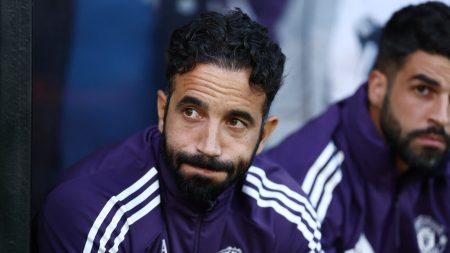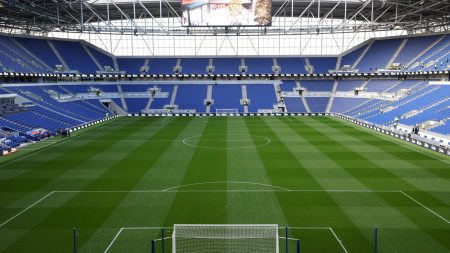Manchester United’s dismal performance on the pitch is threatening to translate into a significant financial blow, with the club projected to lose £10 million in income if their current trajectory continues. Currently languishing in 14th place in the Premier League, their prospects of Champions League qualification appear increasingly bleak. This failure to secure a spot in Europe’s elite competition would trigger a penalty clause in their contract with Adidas, costing them a substantial £10 million. Beyond the Adidas penalty, the club stands to lose significant revenue from broadcasting rights and match-day income, further exacerbating their financial woes. This predicament comes at a time when the club is already navigating the complexities of Financial Fair Play (FFP) regulations.
The financial strain has prompted a series of cost-cutting measures under the watch of Ineos chief Sir Jim Ratcliffe. These measures range from cancelling senior staff credit cards and restricting the use of private vehicles to seeking cost-sharing arrangements with rivals, such as requesting Manchester City to provide transport for United players to the Ballon d’Or ceremony. The club’s financial struggles are becoming increasingly public, with reports highlighting the precarious nature of their financial situation. Former Everton chairman Keith Wyness has even suggested that United are walking a tightrope with Profit and Sustainability rules (PSR) and FFP regulations. He emphasizes the potential need for the club to declare any material risk of breaching these rules to the New York Stock Exchange, where they are listed.
To mitigate the potential financial impact of failing to qualify for the Champions League, Manchester United have incorporated clauses into player contracts that stipulate reduced salaries in such a scenario. The club’s annual report explicitly states that a majority of first-team player contracts include performance-based remuneration tied to Champions League participation, effectively acting as a financial buffer against missed revenue. However, even with these measures, the club’s financial health remains closely linked to on-field performance. The pressure on manager Ruben Amorim to turn things around is immense, not just for the team’s sporting ambitions, but also to alleviate the mounting financial pressures.
The club’s financial predicament underscores the interconnectedness of sporting success and financial stability in modern football. The substantial revenue generated by Champions League participation is crucial for clubs like Manchester United to maintain their financial health and invest in player acquisition and development. The current situation at Old Trafford serves as a stark reminder of the financial consequences that can follow a period of sustained underperformance. Amorim’s challenge is not just to improve results on the pitch but to steer the club away from a potentially crippling financial crisis.
The upcoming fixtures present a formidable challenge for Manchester United, with matches against Liverpool, Arsenal, and Brighton on the horizon. These games will be crucial in determining not only their league position but also their chances of qualifying for European competitions next season. A continued slump in form could significantly impact their financial outlook and necessitate further cost-cutting measures. The club’s ability to navigate this challenging period will depend on Amorim’s ability to galvanize his squad and deliver much-needed results.
The weight of expectation on Amorim and his players is immense. They face not just the pressure of improving their league standing but also the responsibility of rescuing the club’s financial situation. The upcoming fixtures will be a true test of their character and resilience. The future of Manchester United, both on and off the pitch, hangs in the balance. The club’s ability to address its current financial challenges while simultaneously improving its on-field performance will be crucial in determining its long-term success.











